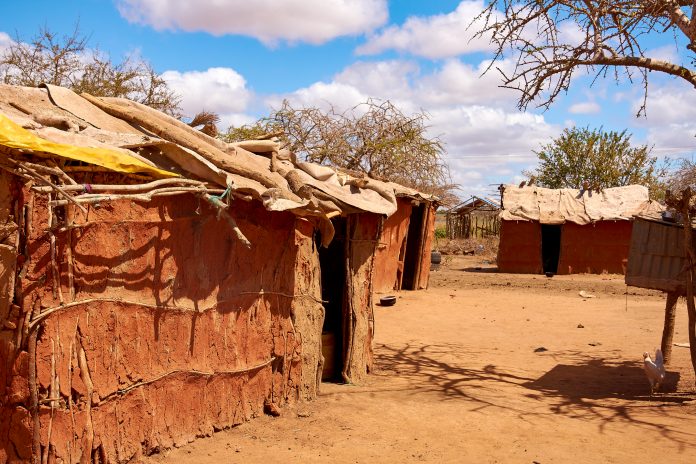Here, we delve into the work of the UK’s Department for International Development to end extreme poverty, as well as combatting climate change and conflict
In the UK today, the Department for International Development (DFID) leads work to end extreme poverty. Their work encompasses combatting the world’s current challenges, such as poverty and disease, insecurity and conflict, as well as mass migration, insecurity and conflict. Their work is geared towards, “building a safer, healthier, more prosperous world for people in developing countries and in the UK too.” (1)
This article will give a flavour of the DFID’s recent work in some of these aforementioned areas, with a special focus on their priorities to end poverty and a brief look at one recent impact of climate change.
The catastrophic impacts of climate change
International Development Secretary Anne-Marie Trevelyan recently highlighted the locust outbreak and its impact on the communities of East Africa. She said that: “Through UK aid and British expertise, we are helping to track, stop and kill dangerous swarms of locust to help millions of people fighting for survival.”
This is a very topical example of DFID’s work to assist vulnerable communities with the “catastrophic impacts of climate change.” (2)
Africa: Girls’ education and ending preventable deaths
In other recent news, we learn that Minister for Africa James Duddridge met Sahel leaders and partners, to champion the UK’s role in girls’ education and ending preventable deaths. Studies tell us that where there are children in countries with conflict and humanitarian crises, one in four are not in school, with girls more than twice as likely not to be in education.
The Minister met global leaders in Nouakchott, Mauritania’s capital, to talk about how the UK can support the fragile region in health and education. Minister Duddridge said: “Increasing conflict in the Sahel has disrupted access to vital basic services for some of the world’s poorest communities. We are committed to work with Sahel leaders and the international community to change this and are boosting our efforts in the region.
“To make our world safer, healthier, more stable and more prosperous, we need girls to go to school, stay in school and have a quality education.
“Through UK aid, we are educating children living in conflict zones, like those in the Sahel, to help transform the world of tomorrow and ensure future generations thrive.” (3)
Prioritising women’s rights to end extreme poverty
Earlier this year, International Development Minister Baroness Sugg appeared in The Times where she wrote about prioritising women’s rights to end poverty. Baroness Sugg underlined that ten years remain for the UK and every United Nations member to end poverty. She said that much has been achieved, for example, UK aid supporting the world’s first Ebola vaccine and in 2019, helping to vaccinate 45 million children against polio plus the doubling of investment to combat the greatest challenges of today when it comes to species loss and climate change.
“But we have a lot more to do and we won’t achieve the global goal of zero poverty without prioritising gender equality and women’s rights. It is wrong that around the world, women and girls still have to fight harder for the rights and opportunities their brothers take for granted.
“We cannot achieve great change when the potential of half the world’s population is going to waste.”
Amongst the many insights offered in The Times article, Baroness Sugg stressed that now is a critical time for UK aid to carry on its “global leadership” where women’s rights are concerned. In closing, she emphasises that a focus on gender equality is the only to end poverty by 2030.
“Focusing on gender equality is the only way we will end poverty by 2030. We will continue to take every opportunity to advance the health and rights of the world’s disadvantaged women, and to end the preventable deaths of mothers, new-borns and children by 2030.
“Aid works. Empowering women and girls works. It saves lives, transforms the future of the poorest communities in the world, and ultimately rewards us all.” (4)
Concluding remarks
These examples show us some of the ways how DFID are leading “the UK’s work in “tackling extreme poverty and helping the world’s most vulnerable”. We wish them well as they continue to build “a safer, healthier, more prosperous world for people in developing countries and in the UK too.” (5)
References
1. https://dfidnews.blog.gov.uk/about-dfid/
2. https://dfidnews.blog.gov.uk/2020/03/05/uk-aid-to-combat-africas-worst-locust-outbreak-in-decades/
3. https://www.gov.uk/government/news/africa-minister-champions-uk-leadership-to-help-educate-girls-and-end-preventable-deaths—2
4. https://dfidnews.blog.gov.uk/2020/01/10/baroness-sugg-prioritise-womens-rights-to-end-poverty/
5. https://www.gov.uk/government/organisations/department-for-international-development/about











